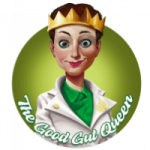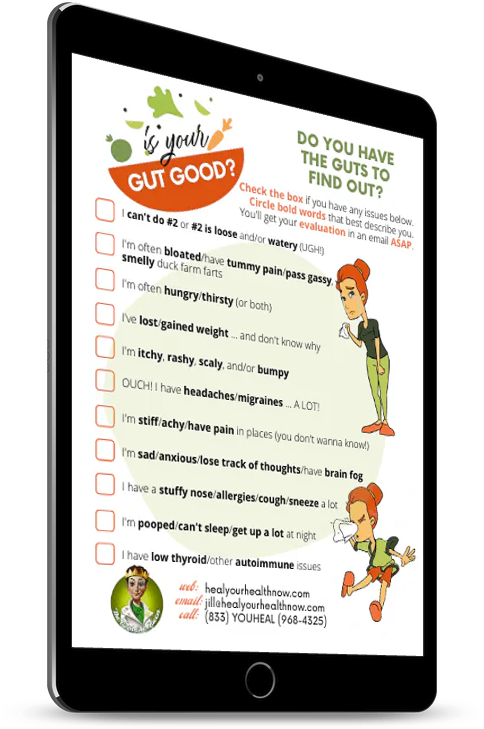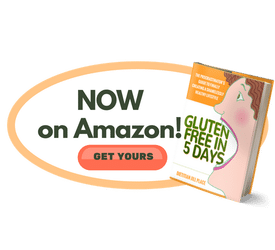 By Dietitian Jill Place
By Dietitian Jill Place
Yesterday I talked with three young ladies on the same day at my psychiatric hospital who were afraid of food … one so much that she wasn’t eating ANYTHING. She seemed to have not an eating disorder (they’re closely linked though) but the problem I talk about below.
The other two said that their eating problems were now minimal (I didn’t believe them for a minute … an eating disorder is an addiction … and addicts lie to protect it). From one though I weedled the fact that … after she told me that she had done “a little cardio” every day … that she actually had exercised TWO HOURS THREE TIMES A DAY!
FYI … the reason people over-exercise is to GET RID OF FOOD they’re afraid of. So I just had to republish this article. Because giving you good advice about what to eat doesn’t mean that you automatically do it. Lifestyle change is a lot more complicated than that …
Being afraid of food is so rampant these days that it’s actually a phobia … Cibophobia to be exact. So many have these “food fears” that you might wonder WHY. There are many reasons … some of which I’m sharing with you here.
Afraid of too Much Conflicting Food Information?
One appears to be the overwhelming wave of too much information from too many sources. Information that touts CLEAN! FREE FROM …! NATURAL! ORGANIC! NON-GMO! …and fifty million (I’m exaggerating) other supposedly good-for-you heralds. Unfortunately, these buzzwords, which are supposed to signal foods not only healthful but environmentally-friendly, can backfire.
I have a client who I have warned again and again NOT to go on the internet to find information. Yet I would get phone calls from her where she would begin, “I bought this supplement because I read …” or “I read that this food is (isn’t) good for you …”
It almost seems that many are almost addicted to searching out often-bad food advice on the internet. It doesn’t seem to matter to them … as long as they can a) find some answer and b) surf the internet to find it. But this type of addiction can be as pervasive and potentially debilitating as a full-blown eating disorder.
[click_to_tweet tweet=”In an article entitled “Food Fears” in the September 2017 issue of Today’s Dietitian, Leah McGrath, RD, LDN said, “Questions I receive during talks, via email, or on social media are almost all fear-based, and the level of food fears is overwhelming.” ” quote=”In an article entitled “Food Fears” in the September 2017 issue of Today’s Dietitian, Leah McGrath, RD, LDN said, “Questions I receive during talks, via email, or on social media are almost all fear-based, and the level of food fears is overwhelming.” ” theme=”style2″]
Why is this so?
Nutrition Nonsense Taken to a New Level
David Katz, MD, blessed food activist, quoted Bertrand Russell, who cautioned, “The whole problem with the world is that fools and fanatics are always so certain of themselves, and wiser people so full of doubts”. He also has written scathing reviews of the recent PURE study, which encourages people to avoid nutritious plant foods, scorchingly saying “it takes nutrition nonsense to a whole new level”.
Our latest questionable buzzword appears to be “lectin” and the book The Plant Paradox by Steven Gundry, MD, who explains that lectin is “designed by nature to protect plants from predators” and “once ingested, they incite a kind of chemical warfare in our bodies, causing … serious health conditions”.
Obviously, Gundry doesn’t understand any type of nutritional science, which is always more complicated than we would hope. The truth is that there are different types of lectin, mostly non-toxic, and that Americans don’t eat the toxic kind … or much of the non-toxic variety either.
Is it any wonder that these types of fear-mongering can make you afraid of food?
It’s Also Because of Opinion … And Bias …
We always seem to be looking for a very simple, pat solution for something that has multi-layered issues. But when it comes to health, that never works.
In reality, it’s about the opinion of the so-called expert that’s spouting it. And don’t forget bias.
There is a group of dietitians that have made it their crusade to lambast any of their peers that entertain any type of alternative treatments. Truth is that many of these so-called crusaders are aligned with the chemical company, Monsanto, who has … it seems … a mission to poison us with things even more threatening than lectin.
It’s downright perversion that some who tout the benefits of food are making you afraid of peers who do the same. But bias, I’m afraid to say, in my particular community, goes deeper than that.
In my own dietetics journal, two recent studies revealed that a whopping 49.5% of dietetics professionals exhibited symptoms of Orthorexia Nervosa (not currently recognized as a clinical diagnosis but considered as an unhealthy obsession with otherwise healthy eating), 12.9% had active eating disordered behaviors, and 25% of dietetics students were at risk for exercise addiction. Not only that …
We Now Live in a Global Climate of Fear
I’m not political, but I know that Donald Trump was partially elected president because he instilled fear into his base with his talk of building a wall, pumping up the military, and defeating Isis “easily”. To my knowledge, none of those has taken place.
As a UCLA sophomore, my very first serious boyfriend told me that “history repeats itself”. I’ve lived through several of these historical repeats, which swing from optimistic to paranoid and back.
And, when we swing into paranoia and divisive thought, which we seem to be in right now, it makes perfect sense that we become afraid of many other things besides fanatics in foreign countries. It seems that we fear for our very lives.
And, [click_to_tweet tweet=”if we can’t connect to something out there, we turn to an inward battle within ourselves.” quote=”if we can’t connect to something out there, we turn to an inward battle within ourselves.” theme=”style2″]
Thinness Obsession Gets Younger and Younger
Here’s another food-fear example. Studies have shown that children as young as age five are obsessed with weight and thinness. Findings from the Project EAT study revealed that [click_to_tweet tweet=”more than 1/2 of girls and 1/3 of boys engage in unhealthy weight control behaviors (fasting, vomiting, laxatives, skipping meals, or smoking to control appetite). ” quote=”more than 1/2 of girls and 1/3 of boys engage in unhealthy weight control behaviors (fasting, vomiting, laxatives, skipping meals, or smoking to control appetite). ” theme=”style2″]
And that higher weight and overweight teens are more likely to engage in both binge-eating and unhealthy weight control than normal weight teens. Also, according to these studies, these behaviors increase as teens get older.
I’ve worked in the eating disorder community for over 25 years. And I know … from the thousands of people I’ve treated as well as my own compulsive overeating journey … that much of this behavior comes from a fear of food. Something that’s supposed to nurture and nourish us. Why?
We Accentuate the Negative … NOT the Positive
I’m currently reading a book called Hardwiring Happiness by Dr. Rick Hanson. Hanson explains that, because of our Neanderthal history of survival-of-the-fittest, fight-or-flight responses, we tend to readily remember negative over positive reactions in our psyches.
In other words, we are much more likely to remember and react to things that make us afraid. And since food is tightly woven into all our narratives, not only to nourish us but for a myriad of other reasons, it only makes sense that we develop negative instead of positive feelings about it.
Where Do we Go from All This?
Too much clashing food information taken to a nonsense level. Radical opinion and bias about food. A global climate of fear. Thinness obsession. A tendency to the negative. Is it any wonder that we’re afraid of food?
Hanson has solutions for all this negativity. They take work, though, because getting off our normal negativity merry-go-round does.
I do too. Ideas based upon my acting and spiritual training. They take work too. But I’ve always had fun doing them. To be continued next week … I’ll share some of both with you then …
By the way, here’s my latest goodie … people love this … and I’ll gift you with a “How-To” freebie for our food-fear topic next week …


Thanks … hope it helped!